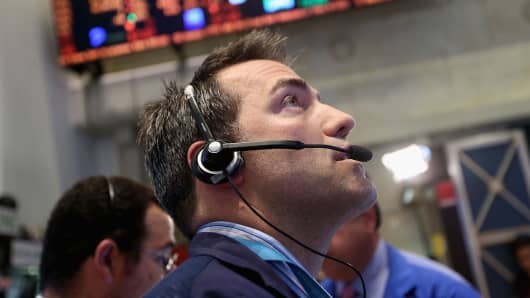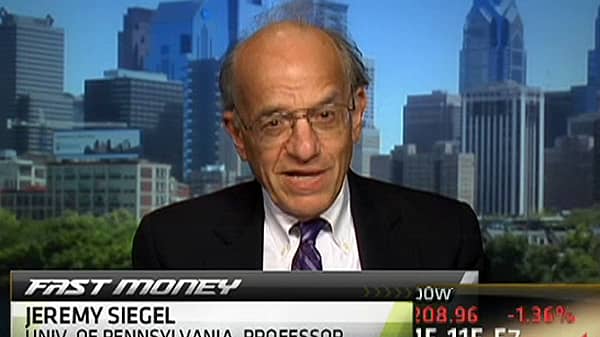So Jeremy Siegel says the Dow could go to 17,000; I think that's a real possibility. But before we get too euphoric, it probably makes a bit of sense to step back and try to refresh our memories on past asset rallies and collapses. It's important as investors you are not drawn into unbridled euphoria; that's just not realistic.
Remember in 1999 when the tech market was red-hot and it was obvious to experts and investors alike that the market was going to continue straight up. Remember NASDAQ 5000? Do you recall during a 3 year period the market dropped as measured by the S&P 500 over 50%? Or, the NASDAQ dropping 65 percent ?
(Read More: 5% Pullback 'Just a Matter of Time': S&P's Stovall)
Perhaps that's too long ago to recall. Remember when real estate was red-hot in 2006 and everyone was mortgaging their houses to buy rental properties on the confidence that real estate couldn't possibly go down. Real estate proceeded to drop over 50% in value in many parts of the country. So much for guaranteed appreciation.
Okay, how about something even more recent. Remember when Ben Bernanke went on 60 Minutes to reassure the world that the U.S. economy was not falling apart. He was not only reassuring the world about the economy but investors who had just endured yet another 50 percent drop in the markets.
Remember when Apple was at $700 a share? Even with a low PE ratio and $140 billion of cash, the stock still corrected downward. Understand that I'm a believer that Apple will rebound, but even we were surprised at the intensity of the downturn based on collapsing sentiment. Such is the nature of the market.
(Read More: This Chart Shows Dow Should Be Lower...a Lot Lower)
I don't mean to throw cold water on market enthusiasm or even suggest that an impending gigantic correction is inevitable. What I do want to point out is that just when the world thinks that it is inevitable that the market will go one particular direction, it sometimes goes the other way. The cry always is that this time it is different. Frankly, it's never different. History tends to repeat itself.
So with this litany of recent disasters in mind, how should one invest in today's market?




